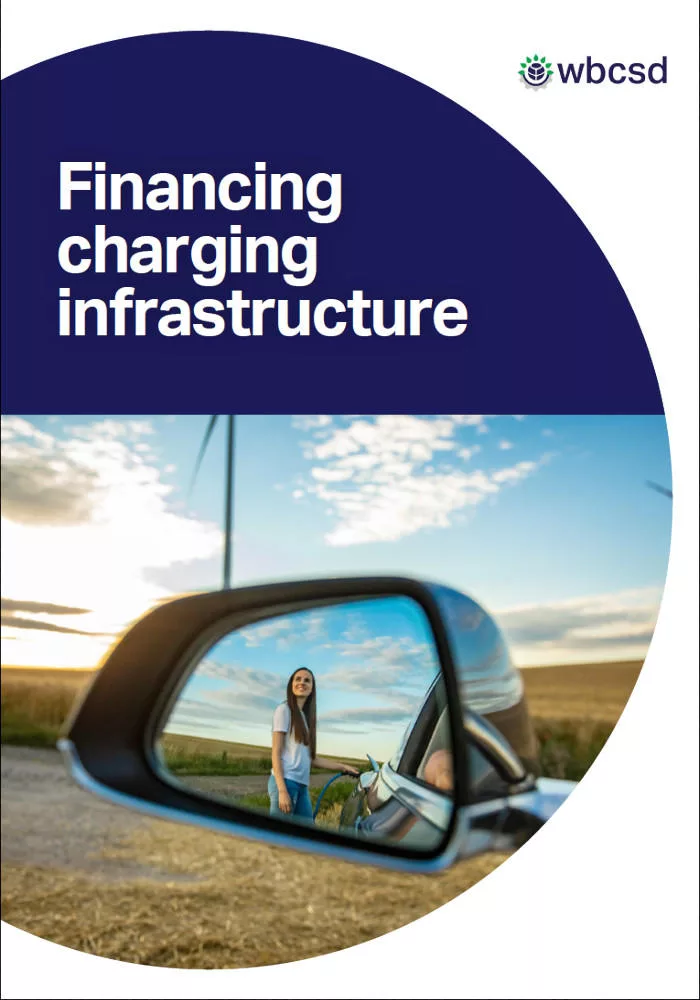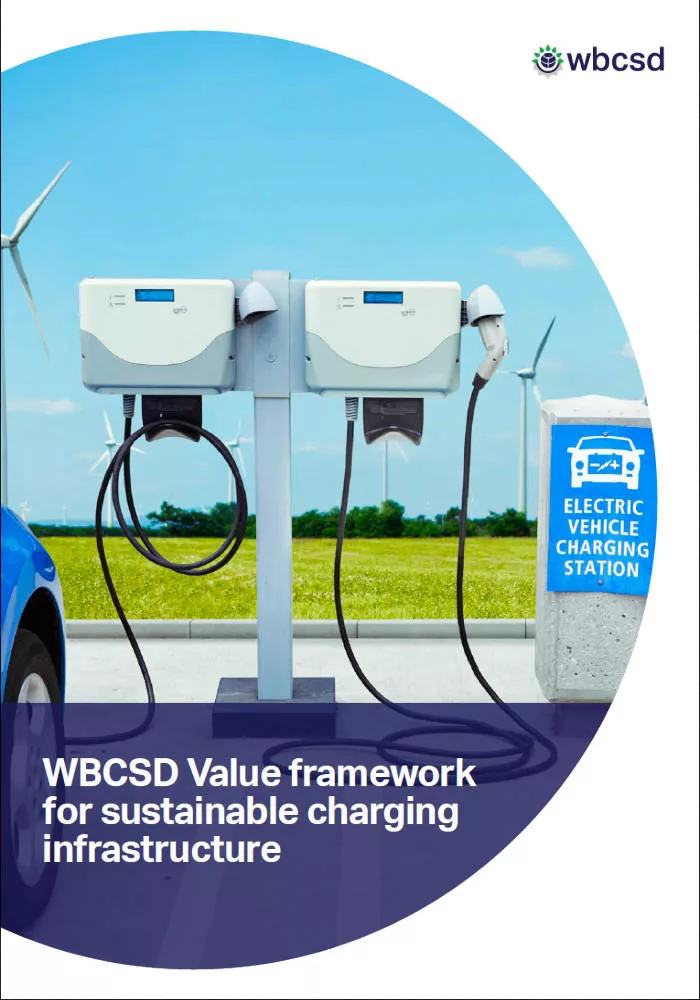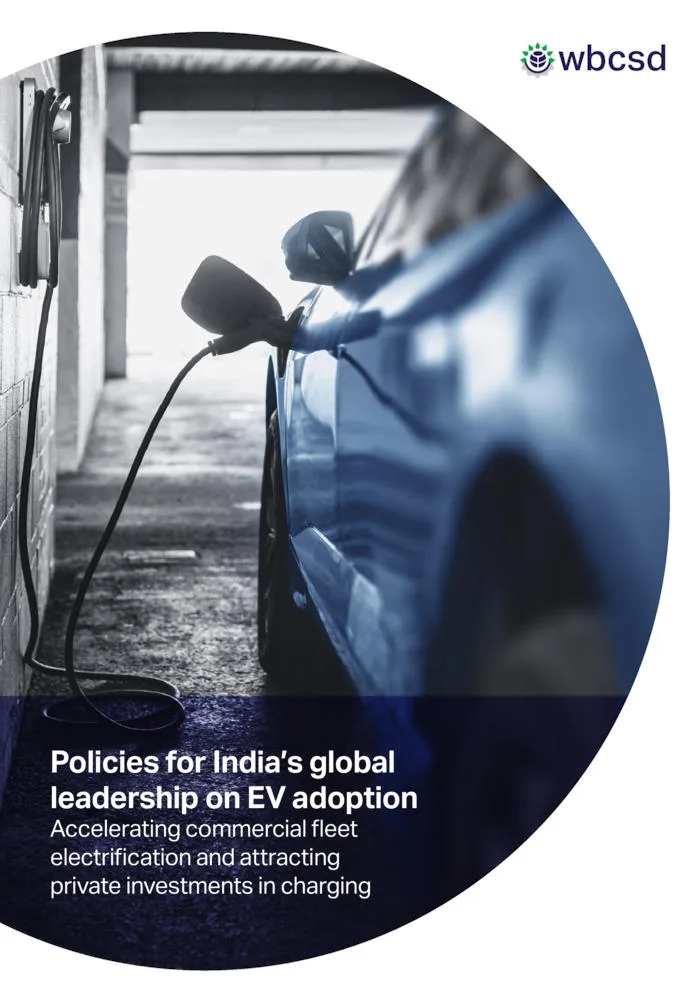
Published
17 November, 2022Type
PublicationDecarbonizing transport is key to tackling the climate emergency. To speed up the uptake of zero-emission vehicles (ZEVs), businesses and policymakers must work together to deploy efficient, sustainable and equitable charging infrastructure
Business as usual is insufficient to finance the necessary transition. The complexity of addressing local market conditions and use cases requires a use-case/risk-level approach to financing and business modeling. Private and public sector collaboration is essential to create scale and de-risk investments globally.
This white paper, developed in collaboration with members of the WBCSD’s Transport Decarbonization project, outlines existing and emerging infrastructure business models and financing mechanisms available to companies and policymakers investing in charging infrastructure. It also provides recommendations for improving financing mechanisms to accelerate global ZEV and infrastructure deployment.
“Over the next decade, all of us will have to invest in energy transition infrastructure, and EV charging equipment is leading the way. We can only achieve the zero-emission goals within the deadlines if financial models are offered that suit every potential investor/purchaser. As this report highlights, businesses, governments, and financiers can create relevant and affordable finance options based on well-established mechanisms. Innovative thinking will achieve a lot, in a short space of time.”
Jeremy De Wit, Vice President, Finance and Corporate, Eaton EMEA
“Decarbonizing mobility and collectively reducing CO2 emissions needs to be an effort from both public and private entities. We have seen that in local markets where those efforts are combined, the rate of EV adoption increases. Through public-private partnerships, we can accelerate and scale infrastructure investment whilst reducing the risk of investment for all parties.”
Simon Swan, Global Solutions Director, New Mobility, Arcadis



